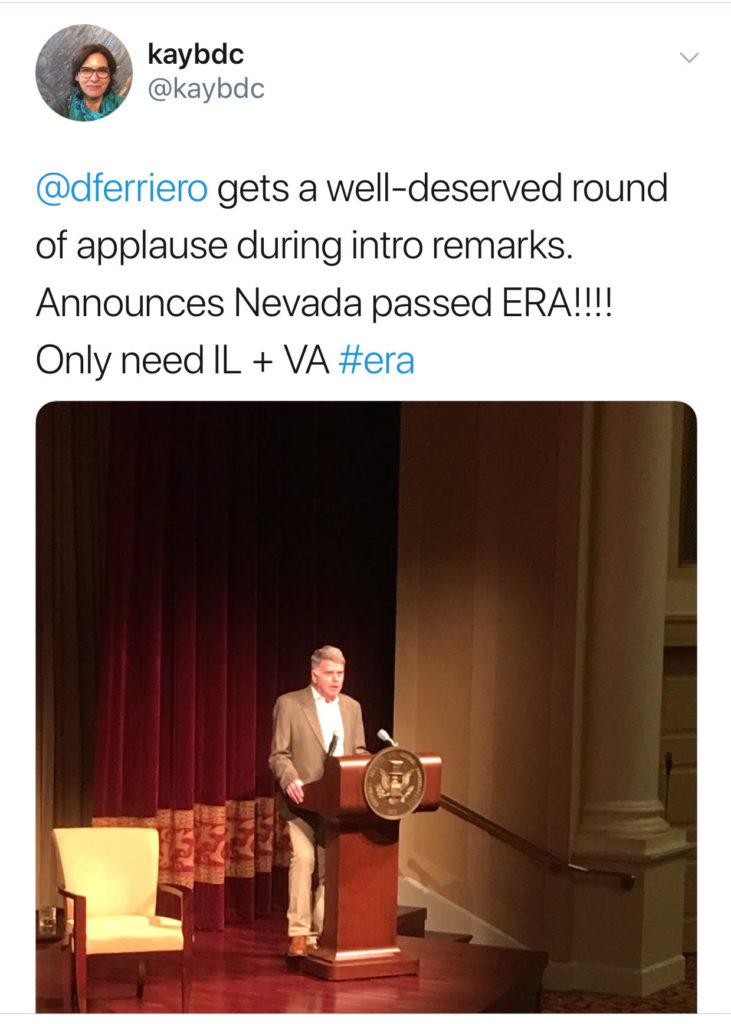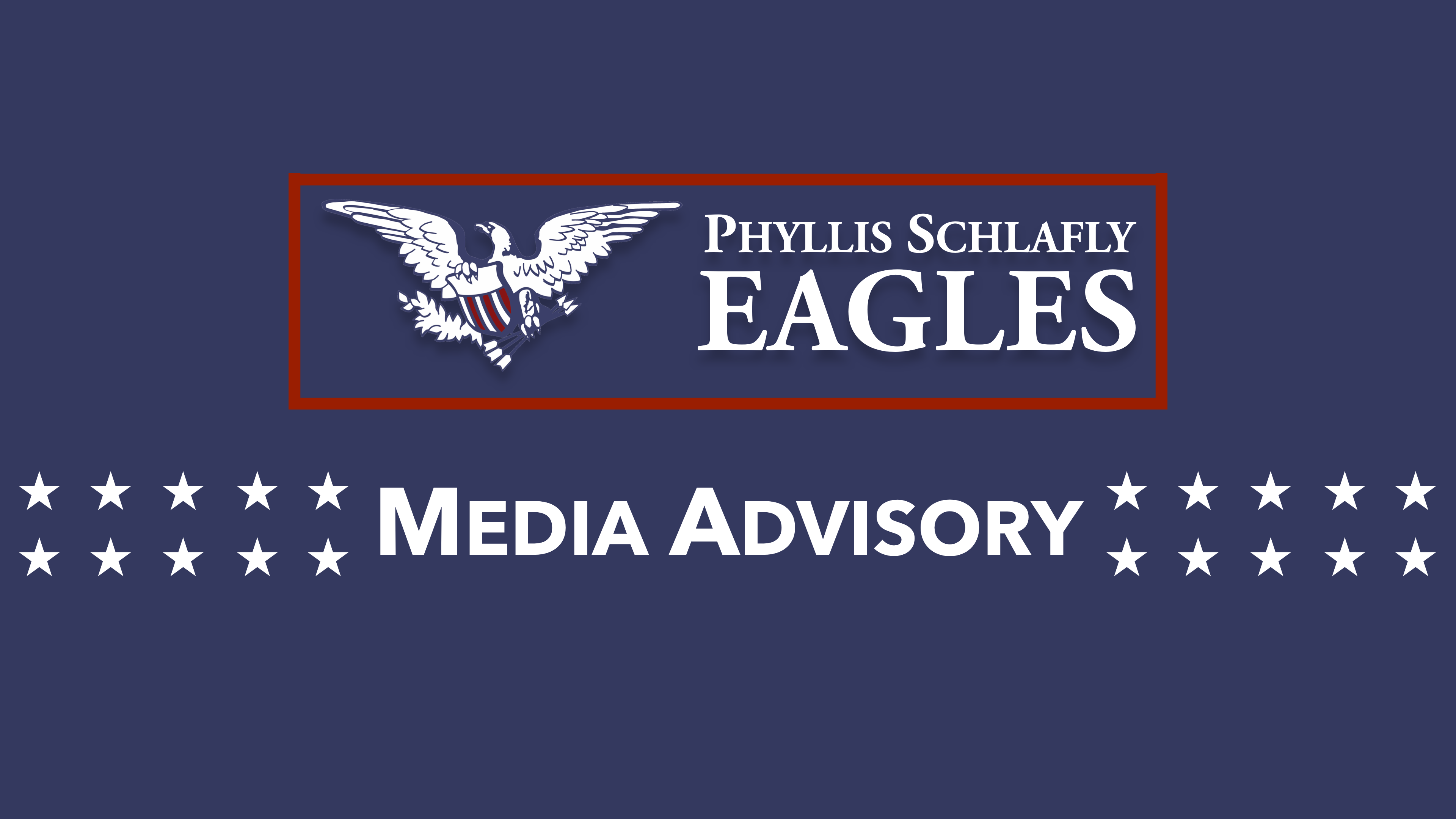For Immediate Release: January 3, 2020
Contact: Ryan Hite, Communications Director
St. Louis, MO: Just before the Christmas holiday, the Attorneys General of Alabama, Louisiana, and South Dakota filed a federal lawsuit against Archivist of the United States David Ferriero in objection to his leaving open the ratification process for the long-dead Equal Rights Amendment. Phyllis Schlafly Eagles welcomes this well-grounded lawsuit, which comes on the heels of a year-long investigation by our Eagle staff to root out pro-ERA bias in the National Archives and Records Administration.
“Archivist David Ferriero may claim impartiality on ERA ratification, but that’s not even remotely true. This unelected bureaucrat is drenched in the Swamp, and that shouldn’t come as a surprise,” said Phyllis Schlafly Eagles president Ed Martin. “When we got word that Ferriero was bragging on Nevada’s alleged ‘ratification’ of ERA, we immediately filed a Freedom of Information Act request to get to the bottom of things.
“Instead of satisfying our straightforward request for documents related to the validity of the Illinois and Nevada ratifications, the National Archives sent Phyllis Schlafly Eagles a string of irrelevant responses, denials, and rejections over the course of many months. Our diligent staff chased down every possible angle, but it appears only a lawsuit from these attorneys general will bring the whole truth to light.
“These brave Attorneys General of Alabama, Louisiana, and South Dakota can rest assured knowing they have the full support of Phyllis Schlafly Eagles. Together, we will get to the bottom of pro-ERA trickery at the office of National Archivist David Ferriero.”
Phyllis Schlafly Eagles is the nation’s leading opponent of the falsely named and long-expired “Equal Rights Amendment.” To see a more detailed timeline of Phyllis Schlafly Eagles’ efforts to uncover bias at the office of the National Archivist, please see below.
###
One of our Eagle leaders alerted us to bias in the U.S. Archivist’s office via this Tweet: 
- On February 11, we filed a FOIA request [click to read] to learn what communications with the state legislatures of Nevada or Illinois made him believe those states’ purported ratifications were legitimate.
- On February 27, the National Archives responded [click to read] with an offer for documents which we had not requested from a time period that was outside the scope of what we had very specifically asked for.
- On March 4, we responded to the National Archives [click to read] with a clarification of what documents we were requesting.
- On March 21, we received an email informing us [click to read] that we should ask for help from the Office of the Federal Registrar (OFR,) but that the documents they could provide likely would not be what we had requested either.
- On April 8, we sent a letter to the OFR [click to read] requesting their help in locating the files requested in our FOIA request.
- On April 8, we officially appealed our FOIA [click to read] request.
- On April 29, the Deputy Archivist responded [click to read] that our request for help from the OFR was interpreted as being a separate FOIA request. He also informed us that he was denying our appeal of the “first” FOIA request.
- On April 30, the Office of General Counsel at the National Archives sent an email [click to read] informing us that while they had found the documents we requested, they were unwilling to give us the documents based on the deliberative process privilege and attorney-client privilege.
- On May 23, we sent an email to the Office of Government Information Services [click to read] (OGIS) in the National Archives requesting mediation of our FOIA request.
- On June 12, we received an email from OGIS [click to read] informing us that they would not provide mediation services until we had appealed our “second” FOIA request.
- On June 13, we officially appealed [click to read] our “second” FOIA request.
- On October 4, OGIS responded that they side with the denial [click to read] of our request, but that even if they didn’t, they don’t actually have any power to mediate anyway.






